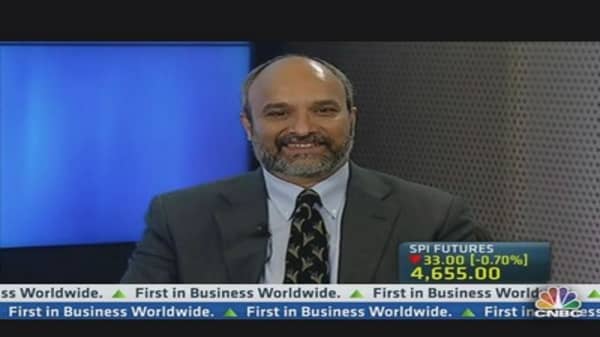Global capital markets are reeling under the volatility brought about by the U.S. Federal Reserve's plans to wind down its monetary stimulus in the coming months.
While the global IPO (initial public offering) market is witnessing a pull back, bond market activity is currently at year-to-date lows as investors weigh the consequences of the Fed tapering.
For example, global debt markets saw only 213 deals in the week ended June 21 2013, the lowest year-to-date, according to global deal tracking firm Dealogic. The value of bond issuances stood at $66.7 billion - the third lowest so far this year.
"Bond market volatility is an immediate deterrent to debt issuance because companies cannot predict what the cost is going to be on issuing debt," Uwe Parpart, head of research at Reorient Financial Markets told CNBC on Monday.
Yields on U.S. Treasurys, which are used as a benchmark for pricing corporate debt, have since risen rapidly since May. 10-year Treasury yields have climbed, for example, from 1.62 percent to 2.52 percent currently.
The high yield debt space has taken a notable hit, with volume falling to $3 billion - the lowest since the first week of the year, which is typically a slower period for capital raising.
(Read More: Record Outflows FromUS Junk Bond Funds)
Junk bond issuances have boomed over the past year as companies took advantage of cheap borrowing costs alongside increased risk appetite. However, high-yield bonds are falling out of favor as an end to the Fed's quantitative easing (QE) is expected to be followed by a rise in interest rates from record low levels, which would be negative for the price of bonds.
In the week ended June 12, investors pulled $6.48 billion out of high-yield bond funds, according to fund flow tracker EPFR, the second highest withdrawal since the company began tracking the funds in 2003.
(Read More: Junk Bond Volume Piling Up, but Trouble Lurks)
Reflecting risk aversion among bond investors, Kumar Palghat, founder and director of Kapstream, which runs fixed income funds, told CNBC that the firm has increased cash in their portfolio to 15 percent from 5 percent.





